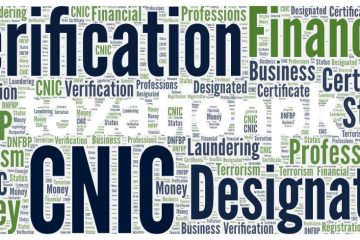The Federal Board of Revenue (FBR) is spearheading a digital revolution within the country’s tax system. This ambitious initiative aims to modernize tax administration, enhance compliance, and ultimately boost national revenue. By leveraging information and communication technology (ICT), the FBR is transforming the way taxes are assessed, collected, and reported in Pakistan.
Here’s a closer look at the key digitalization initiatives driving this transformation:
- E-filing and Automation: The cornerstone of the digitalization drive is the widespread adoption of e-filing for tax returns. This online platform streamlines the filing process for taxpayers, eliminates manual paperwork, and expedites processing times. Additionally, the FBR is automating various tax assessment and audit functions, reducing human intervention and minimizing the risk of errors.
- Track and Trace System: To combat tax evasion and ensure transparency in the supply chain, the FBR is implementing a robust track and trace system. This system utilizes unique identification codes for goods, allowing authorities to monitor their movement from production to sale. This initiative helps identify unregistered businesses, prevent the sale of counterfeit products, and widen the tax net.
- E-Invoicing: Traditional paper invoices are being replaced with electronic invoices (e-invoices). E-invoices are generated electronically, stored securely, and exchanged digitally between businesses and the FBR. This system facilitates real-time data exchange, simplifies record-keeping, and enables cross-verification of transactions, ultimately leading to improved tax collection.
- Point-of-Sale (POS) Integration: Businesses are being encouraged to integrate their point-of-sale systems with the FBR’s infrastructure. This integration allows for real-time sales data to be transmitted to the tax authorities, ensuring accurate reporting of taxable income and minimizing opportunities for under-reporting.
- Online Tax Payment: Gone are the days of long queues and cumbersome bank visits. The FBR has introduced a suite of online tax payment options, allowing taxpayers to conveniently settle their tax liabilities through digital channels, including internet banking, mobile wallets, and online portals. This not only enhances convenience but also promotes a cashless economy.
- Data Analytics and Risk Assessment: The FBR is leveraging data analytics to identify potential tax evasion risks. By analyzing taxpayer data and identifying anomalies, the FBR can target audits more effectively and improve overall tax compliance.
Benefits of Digitalization:
The digitalization of the tax system offers a multitude of benefits for both taxpayers and the government. Here are some key advantages:
- Increased Efficiency: Automation and online platforms streamline tax processes, saving time and resources for both taxpayers and tax authorities.
- Enhanced Transparency: Digital systems promote transparency throughout the tax administration process, fostering trust and reducing opportunities for corruption.
- Improved Compliance: The convenience of e-filing and online payment encourages tax compliance, leading to a wider tax base and increased revenue collection.
- Reduced Costs: Digitalization eliminates the need for paper-based processes, minimizing administrative costs for both the FBR and taxpayers.
- Better Taxpayer Service: Online platforms and readily available information contribute to a more taxpayer-centric experience.
Challenges and the Road Ahead:
While the digitalization of the tax system presents immense benefits, there are challenges that need to be addressed. These include ensuring internet access across the country, bridging the digital divide, and educating taxpayers about the new digital processes. The FBR is actively working to address these challenges by expanding internet access, providing training programs, and offering multilingual support.







